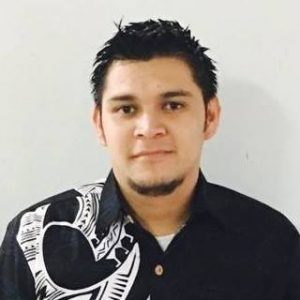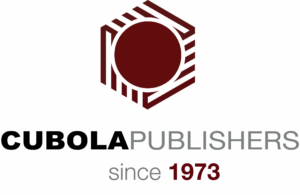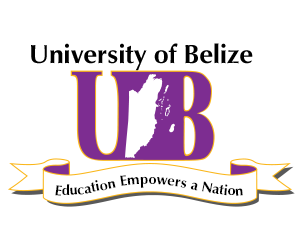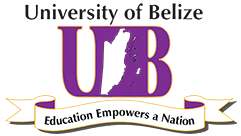- Version
- Download 415
- File Size 1.20 MB
- File Count 1
- Create Date July 25, 2019
- Last Updated July 25, 2019
UB Imprint Vol 56: UB History Program - A Life Changing Experience by Delmer Tzib

Delmer Tzib is now a Teacher at St. John’s College where he teaches: Belizean Studies, Belizean History, Latin American and Central American History and Caribbean History
Why am I doing history? Why do I entertain revolutionary ideas? What do I fight for? These are some of the questions that people have repeatedly asked me as a Belizean educator. I do not have direct answers to these questions, because when I look back, my passion for history is shaped by interrelated influences from all stages of my life. I grew up in San Antonio, Cayo, a Yucatec Maya Village, witnessing cultural fairs and following the famous hog-head dance through streets. I saw our village’s Maya traditions slowly vanishing and by the time I entered high-school, traditional practices were on life-support. As a teenager, I tried to understand Why traditional practices diminished? Why as a Yucatec Maya descendant I could not speak the language? What is causing the decline? I felt identified with Maya traditions but did possess a historical or anthropological background to concretely analyse the evolution in my village. As a naïve teenager, I only maintained the questions as curiosities and did not ponder for explanations.
During my formative years at Sacred Heart College High School in San Ignacio, Cayo, my teachers introduced me to my first love, the ‘formal’ discipline of history. Through subjects such as Social-Studies and Caribbean History, I continued to learn about myself, the complex nature of human beings and to question society not only in my village, but in Belize and the world. My teachers inspired me to continue asking questions, and educated me about political and economic events. Even though I enjoyed the classes, I noticed something missing. Before attending high school, I related history to stories told by elders in my community, but in the high school curriculum these voices are literally non-existent. I also noted that the voices of my people, the farmers, workers and Maya, were underplayed. I learned a lot about the Caribbean but could not relate most of the information to my society. My high school education provoked many more questions but limited answers. I still could not explain why my society is organized in a particular way, why our economy favours only a select group, why our political system harnesses corruption and favours individuals, and why did the traditional practices in my village virtually vanished? I longed for answers to change the status quo, to give credit to the marginalized and to find my space in the Belizean society. These questions shaped my decision to venture into studying history at the University of Belize.
Unfortunately, until I enrolled at the University of Belize’s History Program I managed to get some answers to my questions. My experience at the University, did not only enrich my knowledge but empowered me. Some of the most valuable teachings I took from my university years include:
a. The university provided me with an in depth analysis of Belize’s colonial history. The accounts of British occupation, administrative strategies and suppression of indigenous and minority groups, changed my perspectives of the British crown. It also explained how the system, imposed on our country, deteriorated our cultural traditions, and promoted the spatial concentration of ethnic groups. History showed me that we inherited a Eurocentric system cemented by capitalism which promotes inequality to benefit a few elites.
b. Before attending the University of Belize I had many misconceptions regarding the Maya and African Civilizations. I thought of them as backward or ‘primitive’; I tortured myself as a descendant because I believed that the Maya disappeared not acknowledging that Maya blood runs through me. Our educational system and popular thoughts, regard westernized lifestyles as the optimum, and makes us ashamed of who we are. Lessons taught me about the greatness of the Maya and African civilizations and made me realize that I am not to be ashamed of who I am or covet westernized lifestyles. It made me realize that our people were great and as descendants we should honour their history and be proud of our roots.
c. I also learned about the pillage of our African brothers who suffered horrendous experiences in the African Slave system in Belize. Accounts show the cruelty with which white masters treated slaves who were victims of white supremacist who saw them as objects to make money.
d. The most important teaching I took from my university experience revolves around understanding history from the perspective of the oppressed. History is a tool that carries a social purpose, it can be used by elites and government to foster loyalty or it can be used by grassroots groups to challenge established structures which promote inequality. I learned to use history to challenge structures. Reading through history books also informed me about an urge to rewrite stories which tell our side of history. Our voices are marginalized from accounts which promote Eurocentric views of our own society. It is our duty to include our side of the story to challenge the meta-narratives established by authorities. History from below is a trend which I enjoyed throughout my university journey.
e. My experience also informed me about the struggles in our region and world. The university provided a well-rounded Latin American, Caribbean and World history syllabus which helps to understand our contemporary realities.
f. The university instilled in me a unique critical and analytical eye towards developments in Belize, the region and the world. It not only allows me to understand political, economic and social events but also allows me to analyse its repercussions for our society.
g. I became empowered to change our status quo, to challenge systems which promote inequality, to include the voices of marginalized in history and to empower the working class. I am an agent of change and I promote change through educating others of the power that they possess. Year in and year out, we continue to hear Belizeans complaining about the ‘situation’, history is a way to understand the implications of the ‘situation’ and change it.
The University of Belize was a life-changing event which did not only furnish me academically but made me a conscious human being. Studying history is the best decision I have made, it opened my eyes to issues and gave me a ‘sword’ to fight against inequality and injustices in our society.
History is such a beautiful and empowering subject that enticed me to yearn for a change in Belize. It gave me a reason to live, and a reason to fight. I dream of a conscious society that moves away from political fanaticism, from capitalist inequality, and embraces change that promotes equity. History is not only a subject; it is a way of looking at things which no other subject can give you. I love history and continue to enjoy it. I encourage you to study history, to get answers to curiosities, to ponder on society, and liberate yourself from colonial mentality. This is how much my experience at the University of Belize History Program changed and shaped my life and I enjoy it!





